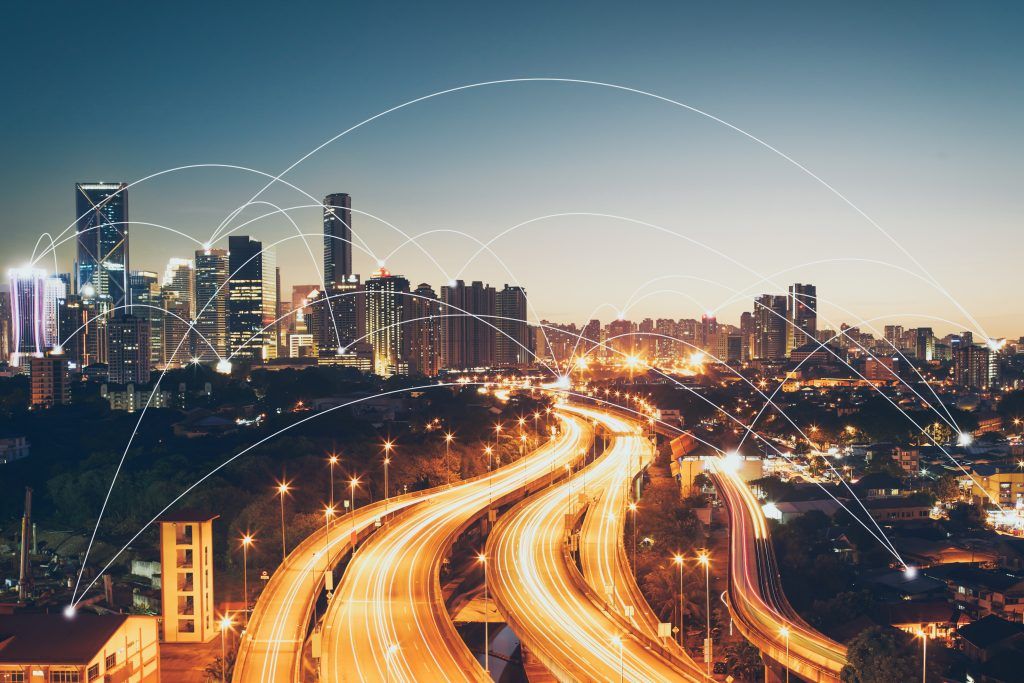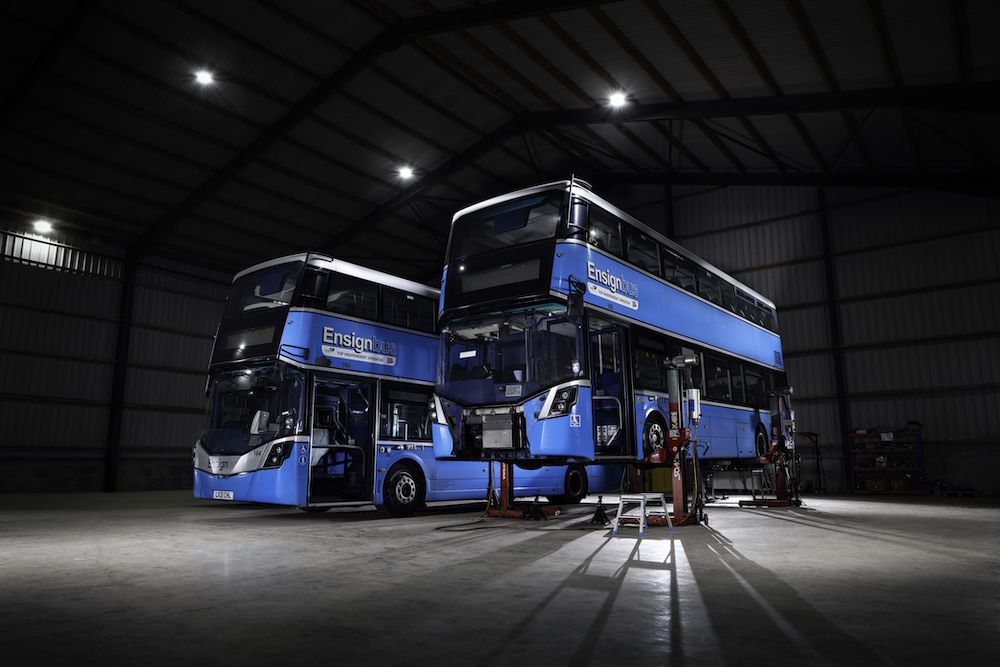A new report by the Energy Digitalisation Taskforce is recommending greater control for consumers over their data to build trust, plug and play options for innovators to enable interoperability with the energy system, and mandated carbon monitoring – as key drivers to accelerate Net Zero.
The new report published today by the Energy Digitalisation Taskforce (EDiT) – commissioned by government, Ofgem and Innovate UK – makes six recommendations to help shape the requirements to deliver a digitalised and decarbonised energy system.
The report – Delivering a Digitalised Energy System – describes the clear necessity to deeply digitalise the energy system. In the near future the sector will be managing millions of new assets on the system, from electric vehicles through to heat pumps, grid scale storage and industrial demand-side actions – all of which need to seamlessly coordinate and deliver a stable system.
Crucial to this transformation will be the customer; building their trust, giving them control and significantly minimising the complexity of the future system.
In making its recommendations, the Taskforce – which is run by Energy Systems Catapult and chaired by Laura Sandys CBE – focused on four key areas: bringing value to consumers; accelerating decarbonisation; maintaining a stable, secure and resilient system; and optimising whole system investment and operation.
The recommendations have been carefully designed to deliver only the most limited intervention, in anticipation of the sector and new actors layering solutions on top.
Among the key actions in the Taskforce’s recommendations are:
- developing a customer consent dashboard to help consumers understand who has access to their energy data, and why – building trust and consumer protection;
- mandating smart energy assets to unlock flexibility by making sure consumer devices have a minimum level of smart functionality and connectivity;
- creating a digital spine for the energy system to enable plug and play options, encouraging whole system interoperability and standardised data sharing;
- mandating carbon data monitoring to improve visibility and understanding around carbon impacts, and help drive future policymaking and consumer actions;
- establishing a digital delivery body to develop core public interest assets quickly and independently from vested interests.
The six high-level recommendations from the Taskforce are as follows:
- 1: Unlock value of customer actions and assets – Crucially building trust and delivering control through a Consumer Consent portal, delivering a seamless ability for assets to connect and benefit from system value by mandating all large customer energy assets to be energy enabled. Consumer protection will need to be enhanced to reflect different risks and smart meter data needs to be released for the public good.
- 2: Deliver interoperability – The sector needs to deliver interoperability through the development and deployment of four Public Interest Digital Assets with particular focus on a ‘Digital Spine’ To ensure interoperability we can build on some existing assets but require Data Sharing Fabric, Data Catalogue and development of some limited but crucial Standards.
- 3: Implement new digital governance approach and entities – Governance of new digital assets and actions will be important and need to be developed soon. Governance around public interest assets, interacting algorithms and opening up regulated assets to digital competition will be important. There also needs to be a Digital Delivery Body established by Government to deliver the public interest assets quickly to be subsequently handed over to the sector.
- 4: Adopt digital security measures – Digital security principles and interventions are crucial but need to be fit for digital purposes with particular focus on cascade impacts, zero trust principles and a sharing culture.
- 5: Enable carbon monitoring and accounting – Carbon visibility sits at the heart of all we propose, but much greater carbon visibility and standardisation is required. We recommend that dynamic carbon monitoring is put in place, and an open carbon standard needs to be deployed economy wide.
- 6: Embed a digitalisation culture – Digitalisation is not valued or understood in all parts of the energy sector, with not enough skills or value given to digital assets and activities. BEIS should employ a Chief Data Officer and importantly investors and the rating agencies need to value digital assets as well as their traditional value assessment for infrastructure.
Laura Sandys, chair of the Energy Digitalisation Taskforce and non-executive director at Energy Systems Catapult, said: “Digitalisation is no longer a nice to have – it’s essential in decarbonising Britain’s energy system, and will need deeply embedding into our energy system if we’re to meet our ambitious and legally-binding Net Zero targets. Without digitalisation the system will not be able to manage the growing complexities of a decarbonised system.
“The Taskforce’s recommendations aim to accelerate the journey to a digitalised, flexible and affordable energy system, and will unlock new business models, change existing functions and should deliver customers a new experience of energy. While many other industries are ahead in embedding digitalisation, the energy sector now has an opportunity to build on best practice and innovate with reduced risk and uncertainty. It’s critical we capture these opportunities to unlock the opportunities and innovation that digitalisation can offer – as we have seen in other sectors.”
Energy and Climate Change Minister, Greg Hands, said: “By harnessing the power of smart and digital technologies we can modernise our energy system, helping improve customer experiences and deliver a net zero future. This report helps us better understand how a digitalised system can benefit consumers and the economy as well as the steps needed to get there.”
Jonathan Brearley, chief executive officer of Ofgem, said: “This report, commissioned by EDiT and other relevant parties, including Ofgem, is useful evidence to help further this crucial agenda. Our top priority is protecting customers, and if we can further digitalise the energy system to make the system more seamless when it comes to creating the right infrastructure in order for net zero to thrive, we’ll see more clean energy and a more resilient energy market. I look forward to working with my colleagues at Ofgem and key industry players to build the appropriate platforms to help bring the relevant initiatives to life.”
Indro Mukerjee, chief executive officer of Innovate UK, said: “The Taskforce presents a compelling vision of an energy system transformed by digitalisation. It advances our thinking in how to evolve the energy system to accelerate the move to net zero. Innovation is key to this, and we at Innovate UK look forward to continuing our strong partnership with BEIS and Ofgem to help shape the future energy economy.”
The Energy Digitalisation Taskforce was launched in May 2021 to continue the government’s focus on modernising the energy system to unlock flexibility and drive clean growth towards Britain’s 2050 Net Zero target.
It follows on from the Energy Data Taskforce – also led by Laura Sandys and Energy Systems Catapult – which in 2019 made five recommendations to lay the foundations for a digitalised energy system. These recommendations were all adopted by Ofgem and the Department for Business, Energy and Industrial Strategy, and progress opening up data is encouraging.
EDiT will present its recommendations at a webinar on Monday 17 January, alongside speakers Greg Hands MP (Minister for Energy, Clean Growth and Climate Change), Ofgem’s chief executive officer Jonathan Brearley and Innovate UK’s chief executive officer Indro Mukerjee.
Image: Shutterstock














